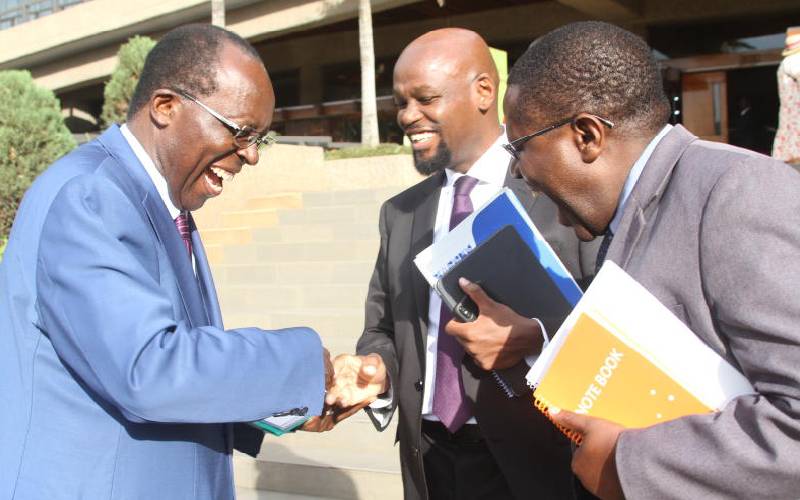×
The Standard e-Paper
Stay Informed, Even Offline

The Judicial Service Commission (JSC) has been accused of flouting the Constitution and failing to ascertain evidence in recommending the removal of Supreme Court judge Jackton Ojwang'.
A tribunal that cleared Justice Ojwang' expressly stated that the petition against the judge was as a result of a process that was procedurally irregular, unfair and carried out in breach of JSC constitutional and legal obligations.